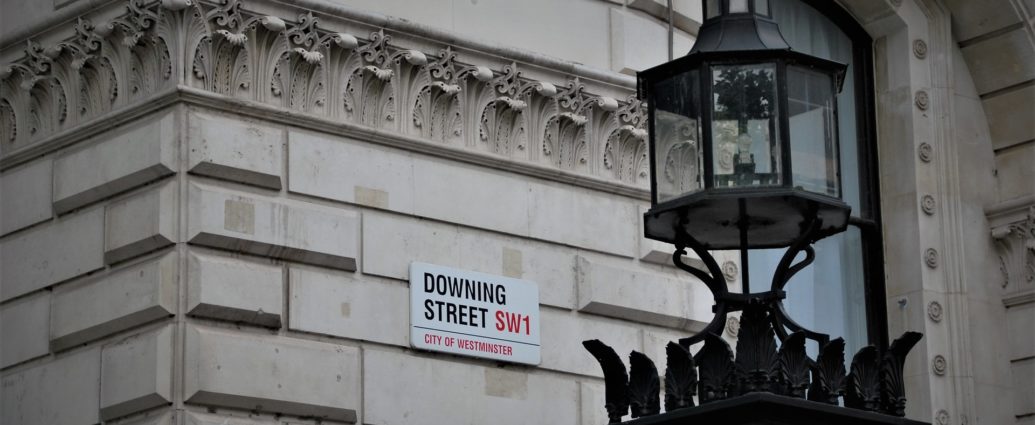Fran Di Fazio
A significant number of Conservative backbenchers voted against a Government proposal to introduce stricter Covid-19 safety measures on 14th December.
The bill, aimed to control the spread of the highly transmissible Omicron variant of Covid-19, only passed with the support of 142 Labour votes. This is alarming news for Boris Johnson, as the 99 Tory rebels largely surpass the minimum threshold of 56 votes required to trigger a vote of no confidence against his premiership.
The rebellion, the biggest one hitting the Government since Theresa May’s tenure, comes in already turbulent times for Mr Johnson. Back in October, the cabinet came under fire for attempting to overhaul Parliamentary standards regulations in order to save MP Owen Paterson from suspension after he was found to have breached lobbying rules.
On that occasion, 13 Tory MPs openly rebelled to the party whip, and even more abstained from the vote. In December, more public outcry was caused by surfacing evidence of Christmas parties held in Downing Street last year, while England was going into full lockdown and hundreds of people were dying daily from Covid-19.
Plan B Covid-19 restrictions
The Christmas party scandal, in particular, risks undermining the Government’s moral authority to manage the ongoing pandemic. The recent emergence of the Omicron variant, which is raising concerns due to its extraordinarily high transmission rate and possibly resistance to vaccines, led the Prime Minister to announce the rollout of so-called Plan B.
This means a return to some of the restrictions which were completely lifted in July, such as compulsory face masks in most indoor venues and remote working where possible. It also entails restrictions to attending large gatherings.
It was this aspect of the bill that caused the Tory rebellion in Parliament. In order to access crowded public events, attendees are now required to prove their vaccination status, or to provide a negative test result, using the NHS Covid Pass or an equivalent certificate.
From 15 December in England, you will need to show your NHS COVID Pass to enter places where large crowds gather, like nightclubs or large sporting events.
➡️ https://t.co/AJ1DZm9T8s pic.twitter.com/NuS2uBnfHp
— UK Prime Minister (@10DowningStreet) December 8, 2021
The debate on Covid-19 passports
Covid passports, as instruments to prove Covid-safe status, are a highly divisive matter.
They are widely used in the EU and its affiliated countries, as they allow fully vaccinated people to travel freely between member states.
In countries such as France and Italy, a Covid passport is necessary for workers in some or most sectors. In Austria and Germany, people who prove to be fully vaccinated are exempt from most Covid-19 restrictions, while the unvaccinated population is subjected to full or partial lockdown measures. Generally, governments deploy Covid passports as a strategy both to limit the circulation of the virus and to encourage citizens to vaccinate.
With the introduction of mandatory Covid certification to access events entailing large gatherings – with 500 or more attendees indoors and 4,000 or more outdoors – England is joining the rest of the UK. The first nation to roll out the scheme, from the 11th of October, was Wales.
Earlier this month, Scotland and Northern Ireland followed suit. But many still regard it as an excessive measure. In Tuesday’s debate, MPs from across the political spectrum voiced concerns about Covid certifications being the first step towards further restrictions such as mandatory vaccination, or even lockdown.
Secretary of State Sajid Javid reassured the House that any further restriction on individual freedoms will be enacted only in the gravest circumstances. “I am confident that these measures are balanced and proportionate, and that they still leave us with far fewer restrictions than are in place in most countries in Europe,” he said.
Mr Javid also announced that the new rules are set to be reviewed on 5th January and to expire on 26th January. Any change or extension of Plan B will be subjected to Parliamentary approval.
Johnson’s fall from grace?
Although the bills relative to Plan B passed Parliament’s scrutiny, the Prime Minister has few grounds for optimism. Tuesday’s record rebellion confirmed unrest among the party’s backbenches, which first emerged with the Owen Paterson’s case. In addition, the public opinion is also turning its back to Mr Johnson, whose popularity ratings keep falling amidst personal and party scandals.
Our latest government approval rating shows the Conservatives slumping to a net score of -43.
Approve: 20% (-6 on 5 Dec)
Disapprove: 63% (+10)https://t.co/RbhfLYT3pU pic.twitter.com/JTlJV8qMMU— YouGov (@YouGov) December 14, 2021
The success of Plan B, which came into force on Wednesday 15th December, will likely represent a crucial test for Mr Johnson’s premiership, especially after the Tories suffered a staggering defeat by the Liberal Democrats in the North Shropshire by-election earlier this week.
Image courtesy of Jordhan Madec on Unsplash. Image license can be found here. No changes were made to this image.

